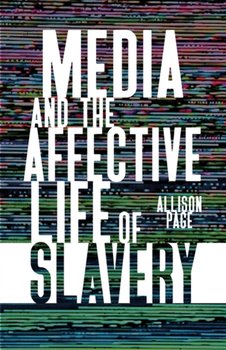In Media and the Affective Life of Slavery, Allison Page interrogates how media culture from the 1960s to the present has mobilized the legacy of slavery for affective governance, or “the production and management of affect and emotion to align with governing rationalities” (6). Throughout the book, Page’s analysis succeeds in providing a rich mapping of the converging interests of state actors, media producers, educational organizations, and other stakeholders as they narrate their own desire to manage emotions in the wake of the civil rights movement and to maintain white supremacist order.
